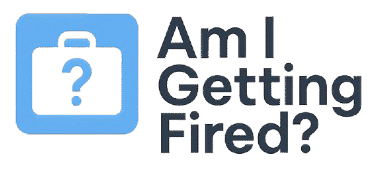Career Burnout Symptoms
Are you feeling like your entire career has drained you? Career burnout goes deeper than job stress or frustration with a boss — it’s a slow, emotional erosion that makes your work feel meaningless, exhausting, and unrecoverable.
This page breaks down the most common symptoms of career burnout, how it’s different from job burnout, and how to protect your position using our free AI job risk tool.
What Is Career Burnout?
Career burnout is the chronic, long-term exhaustion that builds up over years of working in high-pressure or unfulfilling roles. Unlike job burnout, which is usually tied to a specific role or environment, career burnout makes you question your entire path — not just your current employer.
It can feel like you’re emotionally stuck, exhausted by your field, and out of options. And if it shows up in your work, your employer may see someone who’s disengaged, underperforming, or no longer invested.
Top Symptoms of Career Burnout
- Loss of purpose: You question why you started in your field and whether it matters anymore.
- Long-term fatigue: You’ve felt emotionally or physically worn down for months or years.
- Reduced motivation: No promotions, raise, or challenge reignites your interest.
- Resentment or regret: You feel trapped in a career that no longer fits who you are.
- Emotional numbness: You no longer care about feedback, performance, or growth.
Real Story
Paul had been in IT for 15 years. He used to love solving problems, but after years of late nights, shifting demands, and company mergers, he began dreading every Monday. His work slipped. He was passed over for a promotion. Eventually, he was let go in a quiet layoff — and he didn’t even feel surprised. The burnout had been building for years.
Takeaway: Career burnout creeps in slowly, but when it shows up in your work, your employer may react quickly — especially in competitive environments.
How Career Burnout Affects Your Job
Career burnout symptoms often resemble those of a disengaged or underperforming employee — even if you’re still trying. You may become less responsive, less innovative, or appear emotionally checked out. Over time, this can put your job at risk without anyone ever saying the word “burnout.”
Tip: If your coworkers seem more energized, or your manager is checking in more frequently, it may be a subtle sign your performance is under watch.
What to Do If You’re Burnt Out on Your Career
- Pause and reflect: Ask yourself if this is about the job — or the field itself.
- Talk to someone: A mentor, coach, or therapist can help you reframe your path.
- Look for shifts: A lateral move or sabbatical might restore clarity before you make a big change.
- Use our AI tool: Check if burnout symptoms are threatening your current job without realizing it.
Summary
Career burnout is real — and it doesn’t mean you’ve failed. But it does mean it’s time to check in with yourself before the signs cost you your next opportunity. Whether you’re ready for a big change or need short-term protection, awareness is your first step.
Use Our AI Tool: Could You Be Let Go Without Warning?
Our free tool analyzes signs of disengagement, performance decline, and early job risk signals that might result from burnout — even if you’re unaware. It’s quick, private, and takes under a minute.
Internal Links
FAQ: Career Burnout Symptoms
How do I know if I’m burnt out on my entire career?
If you’re chronically exhausted, disengaged, or feel no excitement about your future in your current field — even in a new role — you’re likely dealing with career burnout.
Can career burnout affect job security?
Yes. Burnout can lower your performance and visibility at work, leading to warnings, being passed over, or termination — even if you’re not aware of how it appears to others.
Is career burnout permanent?
No, but it often requires significant changes — like a new path, break, or mindset shift — not just a new job or vacation.
Should I change careers if I feel burnt out?
Not always. Start by identifying the root cause. Sometimes a shift in role, industry, or work-life balance can make a huge difference without starting over completely.
Can I still succeed if I’m burnt out?
Yes, if you take it seriously. The earlier you recognize the signs and take action, the better chance you have of turning things around before your career takes a hit.
